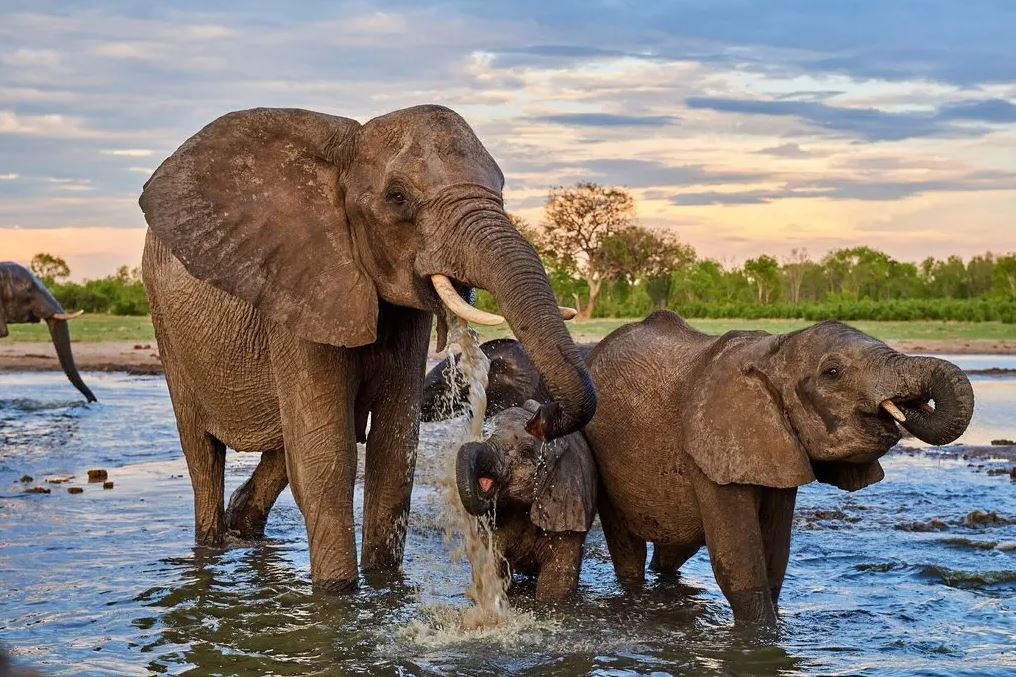Some hunters were notified last month by the United States Fish and Wildlife Service that they would be able to bring six elephant trophies into the country from Zimbabwe. The African elephant corpses will be the first to be brought into the nation in five years, according to officials.
In November 2017, the Trump administration implemented an agencywide moratorium on the processing of elephant trophy import licences, which has stopped any elephant tusks, tails, or feet from being imported into the nation. The decision removes that moratorium.
An agreement reached in September 2021 with the Dallas Safari Club, a big-game hunting club that sued the Trump administration in December 2019 for suspending trophy permit processing, resulted in the reversal. The Namibian Ministry of Environment and Tourism was also included as a plaintiff in the lawsuit. The Fish and Wildlife Service is compelled to process the licences of the 11 hunters who were listed in the lawsuit, as well as 73 other pending permit applications, as a result of the settlement agreement. This might possibly result in an increase in the number of trophies being imported into the United States from nations that permit restricted elephant sport hunting.
In the words of a spokesperson for the Fish and Wildlife Service, both parties “negotiated a settlement they consider to be in the public interest and a just, fair, adequate.
The decision by the service to settle the lawsuit is the latest chapter in a long-running debate between hunters and biodiversity experts over whether trophy hunting is beneficial or harmful to big game species, particularly endangered animals such as the two species of African elephants on the endangered species list. It has also elicited criticism from activists and environmental organisations who wonder why the agency did not oppose the case or restore a similar prohibition that was enacted under the previous administration.
They point out that President Biden’s campaign promise to ban hunting imports is in direct conflict with this decision.. Critics also point out that it is the latest in a series of perplexing steps taken by the Biden administration to acquiesce to lawsuits left over from the Trump administration and a failure to invest in more protections under the Endangered Species Act, such as the conservation of more grey wolves, among other things. They claim that Mr. Biden’s actions demonstrate that he has not honoured his promise on environmental objectives.
Trophy hunting may qualify as species enhancement, according to the Fish and Wildlife Service, whose viewpoint predates Mr. Biden’s election. “Legal, well-regulated hunting as part of a solid management programme,” according to an agency representative.
Big game hunters claim that the money they spend on hunts is eventually re-invested in the rehabilitation of the species and provides economic advantages to neighbouring communities, therefore deterring poaching and preserving the species’ habitat. They also believe that shooting some species like as elephants and lions might be beneficial to the general health of the herd.
For a hunt in Africa, hunters may expect to spend upwards of $40,000 on a hunt in countries such as Zimbabwe, Tanzania, Zambia, and Namibia, with many winning the rights to hunt in Africa via bidding wars held at national conferences such as the Safari Club International’s annual convention.
Critics further argue that there is no evidence that money spent for a hunt eventually aids the recovery of the species, particularly given the fact that corruption has been shown to be widespread in various nations where African elephants are reported to exist.
So far, the wildlife service has processed eight permits, according to the agency. Apart from the six it permitted, it rejected two applications and is scheduled to decide on many more in the coming months. In September, Mr. Lyon calculated that around 300 elephant trophy licences from several African nations were pending clearance, according to his estimates.
Mr. Easter has said that he would not waste any time in celebrating his legal success. Arrangements are already being made for the shipping of his elephant’s tusks to his house in Texas.

